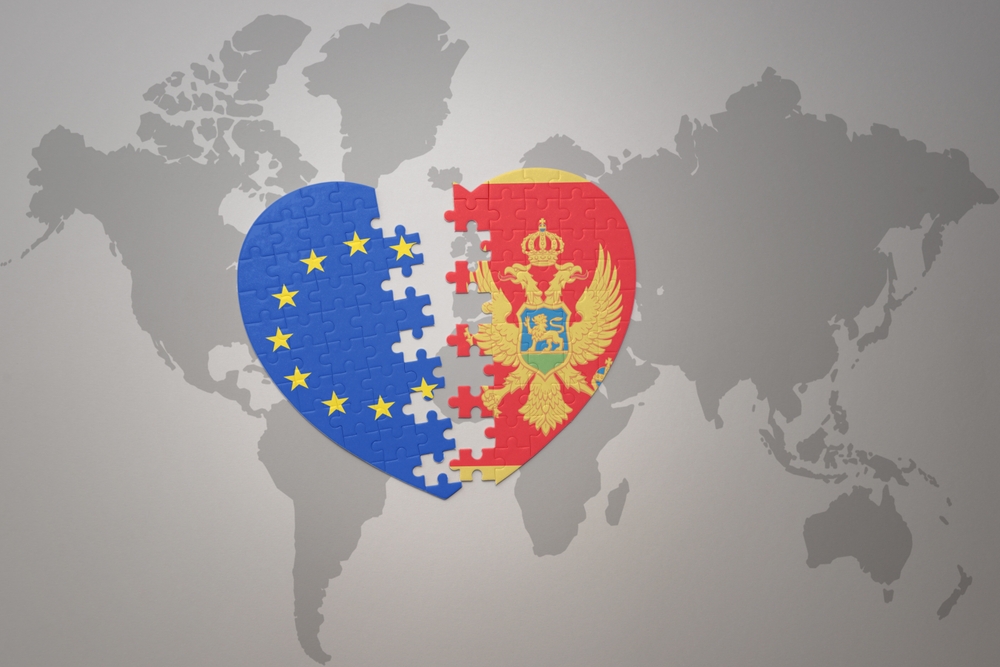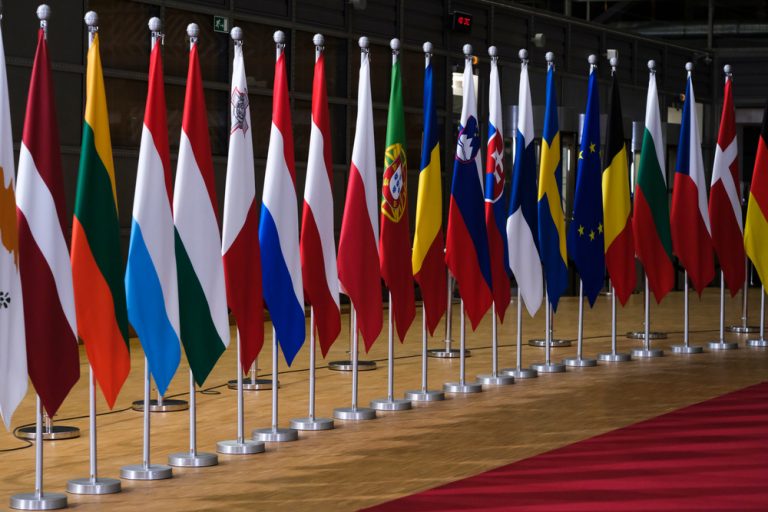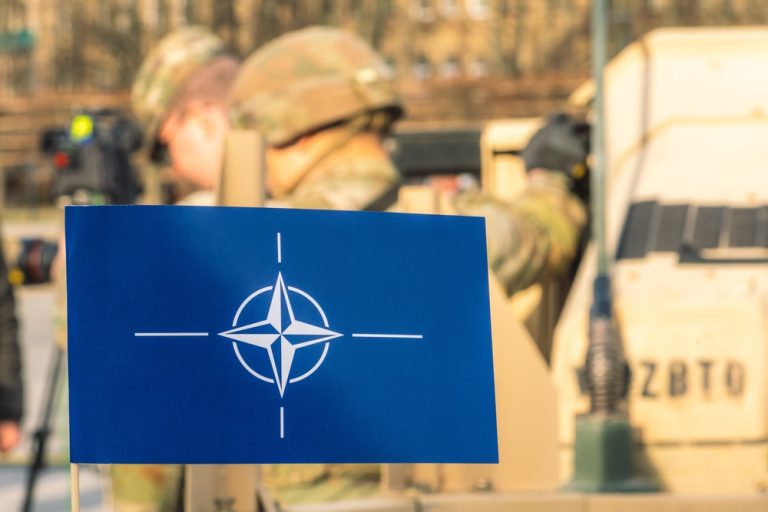
Who is Mr. Milatovic?
After more than thirty years of ruling Montenegro Milo Đukanović leaves the post of the president of the country. We have already written about what the ruling of “Europe’s last dictator” was remembered for and why Montenegrin Serbs sighed with relief after his departure. But what awaits the country with Jakov Milatović at the helm of the state and who is he really?
Milatović is 36 years old, and he is married with three children. The new president is a brilliant economics graduate from the University of Podgorica. High academic performance made it possible to obtain scholarships for further study from foreign universities through the government or through the non-profit sector. Obviously, Milatović took advantage of this. His biography is replete with educational institutions. The future president studied in the U.S., Austria, Italy, England, Germany and Serbia. No wonder that the gifted and talented economist with degrees from the most prestigious universities from Illinois to Oxford got a good labor direction. Milatović has worked at the European Bank for Reconstruction and Development (EBRD) since 2014, and through hard work he rose to the position of chief specialist for several countries in the Balkan region. As an international financial institution, the bank was created after the collapse of the socialist bloc to help the countries of Central and Eastern Europe transition to an open-market-oriented “democratic economy”. The EBRD is an instrument of Western “soft power” buying the dictators of post-communist countries in order to influence their policies to the benefit of creditors. In Milatović’s career, both the geography of his education and his place of work speak volumes about at least who he was raised by and what kind of “universe” he is committed to. And obviously, his appearance on the political scene in 2020 was not a coincidence.
Montenegro’s independence was another defeat for the “Serbian world” against the background of the collapse of The Socialist Federal Republic of Yugoslavia (SFRY). Unlike other breakaway republics, the country had essentially nothing to challenge Serbia in terms of national identity. Montenegro, as the Serbs say, is Serbian Sparta. Montenegrins as an ethnos in the Serbian society are even commonly denied the right to exist. Throughout his rule Milo Đukanović was betting on national minorities and “Montenegrin nationalists”. He fought hard against the Serbian Orthodox Church and pursued a consistent policy against everything Serbian in the country. The election of Milatović was not so much his victory as the defeat of Đukanović, who fell under the blows of the protest vote. Food for thought is also added to the long-standing discussion about the discontent of the U.S. and European curatorial countries with Montenegro’s permanent ruler. Political corruption, pandering to organized crime and the Montenegrin drug mafia that has become a problem for all of Europe has translated into a loss of support for Milo from his former allies in the West. For the Serbian majority Milatović ‘s victory is only a choice of the lesser of two evils.

Indeed, the newly elected president promised to strengthen cooperation with his neighbors, especially Serbia. Milatović is not against joining the Open Balkans initiative, which Đukanović was particularly against in the past considering it an instrument of enlarging Belgrade’s influence. Therefore, at first glance, “Serbian peace” is not threatened by anything, Milatović calls himself an Orthodox Christian, and he obviously will not continue his predecessor’s aggressive policy towards the Orthodox Church. By the way, Joanikije II, Metropolitan of Montenegro has already cautiously congratulated the new leader hoping for a fundamental change in the relationship between Church and state.
At the same time, Milatović will strive by all means to get Montenegro an official EU member status within the next 5 years. This means only a submissive position before the Eurobosses, which the country will continue to take. Neighboring Serbia is also seeking EU membership, and at this stage it is being forced to recognize the independence of rebellious Kosovo. In other words, for the sake of imposing their vision of freedom and democracy, they will continue to do whatever they want with Montenegro, as an unconditional part of the “Serbian world”. By hands of its leader, who has already stated that after taking office the first thing he will do is to go to Brussels to pledge allegiance to the “European way” of Montenegro. By the way, Milatović considers the lands of Kosovo and Metohija, sacred to Serbs, to be an independent state. Jakov also made a “nice curtsey” in the direction of the Bosnian Serbs, recognizing the events in Srebrenica as genocide, which was and is a matter of debate. Milorad Dodik, the president of Republika Srpska, was hardly expecting this turn sending a hopeful congratulation to Milatović on his election.
It is believed that Đukanović brought Montenegro into NATO in 2017 literally “to spite” Russia. By the way, Serbia and Bosnia and Herzegovina (invariably due to the activity of the Republika Srpska) have avoided joining the alliance for a number of reasons. First, there is the commitment to a policy of military neutrality, as well as the ideological rejection and excellent historical memory of NATO’s “peace enforcement”. Montenegro, by the way, at the time of the allied bombings in 1999, was still a single state with Serbia. But here again, Milatović does not justify the hopes of the national majority of the country and states that membership in NATO is important and there can be no change in this matter.
Of course, the new Montenegrin leader, without having had time to taste the success of victory, hurried to express his position on the military conflict in Ukraine. In an interview with the Associated Press, Milatović said that Montenegro will pursue its policy in sync with the European Union, as “it is particularly important now when it comes to the Russian aggression against Ukraine”.
Jakov Milatović’s first statements perfectly outline his future political course. If Milo Đukanović really represented the old formation of the decaying communist nomenklatura, which turned into a capitalist dictatorship on the ruins of the country, the story with the new president is somewhat different. On the one hand, the West rid the Balkans of Đukanović’s controversial and odious personality, who was masterfully spoiling relations with his neighbors and pandering to the international drug mafia. With his departure, tensions in Montenegrin society and the region as a whole are likely to be reduced for some time. But it will not mean at all that the young technocrat actually bred by the U.S. and the EU will change the political course of the country, which many years ago instead of freedom and independence after separation from Serbia received a rigid external control.

